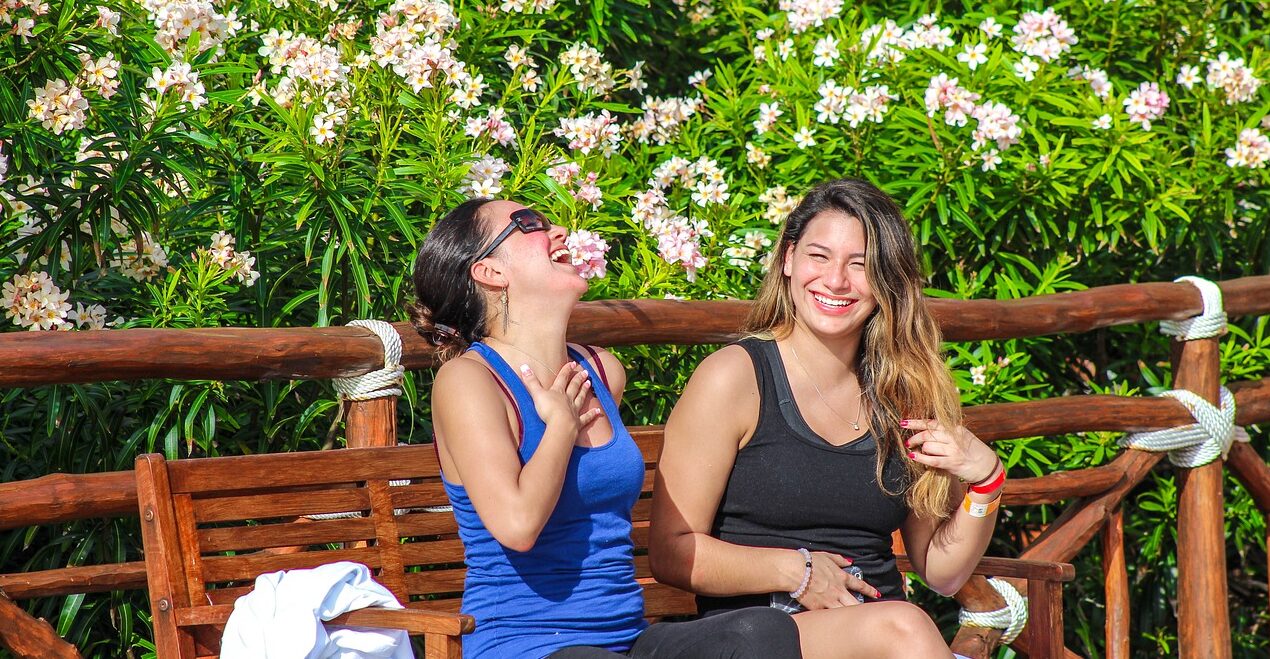Last week I started a post about low energy happiness skills, skills to empower your happiness regardless of the difficult circumstance that result from chronic illness. Here are 5 more that can complete a recipe for happiness and tips for how to develop them:
6. Being You and Creativity
When we are able to naturally be ourselves, joy in the moment comes far more easily. Make sure you are spending time with people who get you just as you are with no expectations for how you should behave and what you should do.
Take time to connect with your natural essence and learn new ways of expressing your talents within your new reality. Sit quietly in nature, meditate, do some stream of consciousness writing or explore yourself with a coach or a counsellor.
Be creative; creativity is a little like a muscle, it doesn’t matter which ways you practise it, it will all help free you to express yourself more naturally.
The more often you can just be you the happier you will be. How could you make sure you spend a little time regularly just being with yourself or being creative?
7. Attention, Journaling and Positive Mental Commentary
Another skill that needs to be developed to be happy when you have little energy, is to be discriminative about what you pay attention to. There are lots of things that could grab our attention that don’t add to our wellbeing. It can be very easy to compare our life with the life of others and find it lacking. However, if we choose to pay attention to what we have and what we can enjoy, what we don’t have and can’t do is irrelevant.
One of the best decisions I ever made for my happiness was to stop watching the news. Instead of worrying about the state of the world and humanity, choosing to look out for the good in people and the little ways that they make the world a better place, was much better for my motivation to do what little I can. I also like to pay attention to how little actions can have a positive ripple effect.
Journaling is a great tool for directing attention. Use your journal to pay attention to what you have in your life, your achievements, your purpose and the small ways you are moving forward, and you’ll start to notice all of that more spontaneously in the moment too.
Another attention tool for making life happier is to use a slightly exaggerated positive mental commentary. For example, when you take a bite of some nice food, tell yourself ‘ohhh… I’m really enjoying this food.’ When you’re out in the sunshine tell yourself ‘it feels so good to be able to feel the sun on my face.’ When your find yourself laughing at a book or a TV program, tell yourself how good it is to laugh and how grateful you are to the author, actors, producers etc.
8. Acceptance, Trust and Detachment
We cannot change what has happened up until this moment, so the only way to allow ourselves to be happy with difficult circumstances is to accept what is, recognising that with acceptance comes the strongest power to adapt and develop appropriate happiness skills. Acceptance is like a foundation stone for other happiness skills to build upon.
Often, we have to deal with lots of unpleasant moments, lots of steps back that mar the steps forward, lots of feeling miserable when a flare of the illness affects our brain chemistry and that’s where trust is needed to accompany acceptance. When you can trust things to work out, it’s easier to accept the unpleasantness of the moment, recognising it is just a moment, a temporary experience, trusting that there will be plenty of joyful moments to come. Detachment plays its part in this too, if we are too attached to what a happy life should look like, we won’t be able to glide smoothly from the miserable moments to the joyful ones, instead we’ll get stuck with a feeling of life isn’t as it should be. It’s good to have hope, but when you can stay detached from the outcome of what you’re hoping for, you will free yourself to have far more moments of joy, even when they don’t look like what you were hoping for.
The best way to develop acceptance, trust and detachment are to notice where not having them gets you, choose them where you can and look out for evidence of how they make life better.
9. Laughter, Treats and Socialising
To really be happy we need to take control of the things that make us feel good. That means actively seeking things that make us laugh, loving yourself enough to find healthy ways to feel treated, and taking the initiative with inviting your friends and loved ones to get involved socially in a way that suits your well-being needs.
I make sure I watch one comedy program a day that’s guaranteed to make me laugh (The Big Bang and Friends are my go-tos). I also do what I can to find authors that make me laugh for my light relaxing reading. I have 1 square of no added sugar dark chocolate as a post meal treat, and do my best to find damage limitation recipes to treat myself from time to time. I also treat my senses with essential oils. Most importantly though, I’m nearly always the one to call my friends or invite them to socialise in a way that suits me.
How could you make sure to include laughter in your day? What healthy ways could you treat yourself? What kind of socialising would best meet your well-being needs? Love yourself enough to take initiative and make sure you get what you need!
10. Giving and Nurturing
When you have limited energy, you can often feel like you’ve got nothing available to give. I’ve found it really important to rethink the little ways that you can give to others and find something to nurture. When I was really depleted and lonely, I always used to think I needed to be given to before I’d have anything to give, but I made an amazing discovery that giving opens up a rewarding flow and fills you up as you do so.
 Smiling at people, offering a compliment when you can, loving kindness meditations, prayer, silently wishing people happiness and well-being are all low energy ways we can get a sense of giving.
Smiling at people, offering a compliment when you can, loving kindness meditations, prayer, silently wishing people happiness and well-being are all low energy ways we can get a sense of giving.
Looking after plants and low maintenance pet, (or having help with nurturing a garden or higher maintenance pets) can also be important ingredient in a happiness recipe. Nurturing is something that can easily be taken for granted or turned into a chore, so make sure you pay attention to how important every act of nurturing is to the life that you are nurturing, value yourself for it and turn it back into a loving act.
I like to combine the two, growing things from seed and then giving the excess away, whether it’s flowering plants, vegetable seedlings or excess produce from a shared veggie plot.
How could you be more conscious about giving and nurturing?
You may already have a repertoire of low energy happiness skills, but which ones could you develop further?







I’ve definitely found that giving and nurturing are very rewarding – and I’ve also noticed that those kind of activities make me feel more energized – it’s a win-win all the way around!